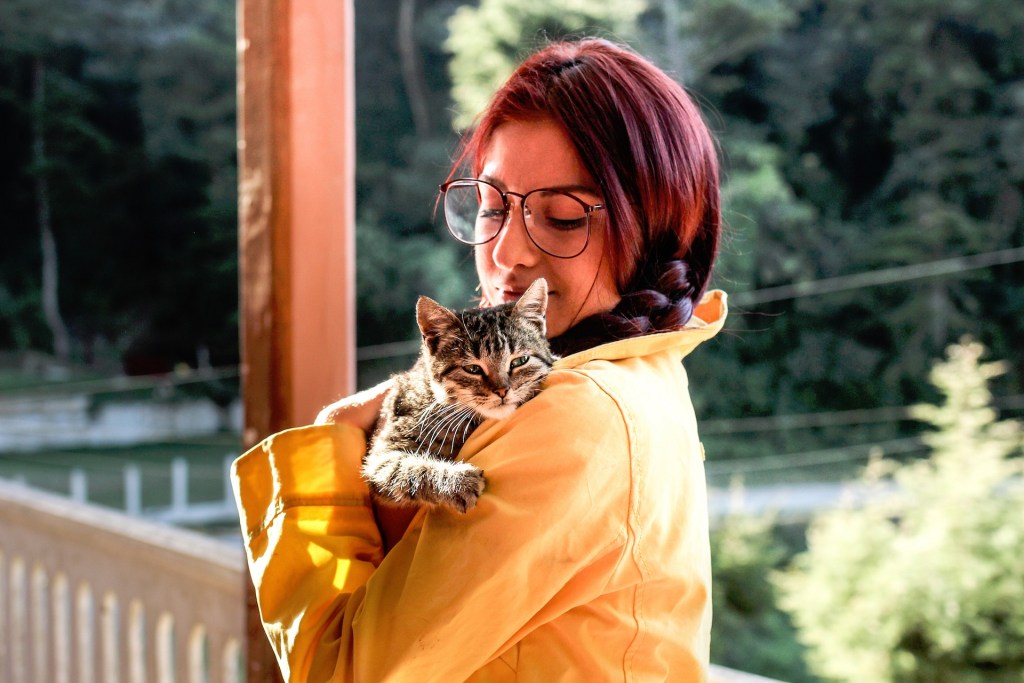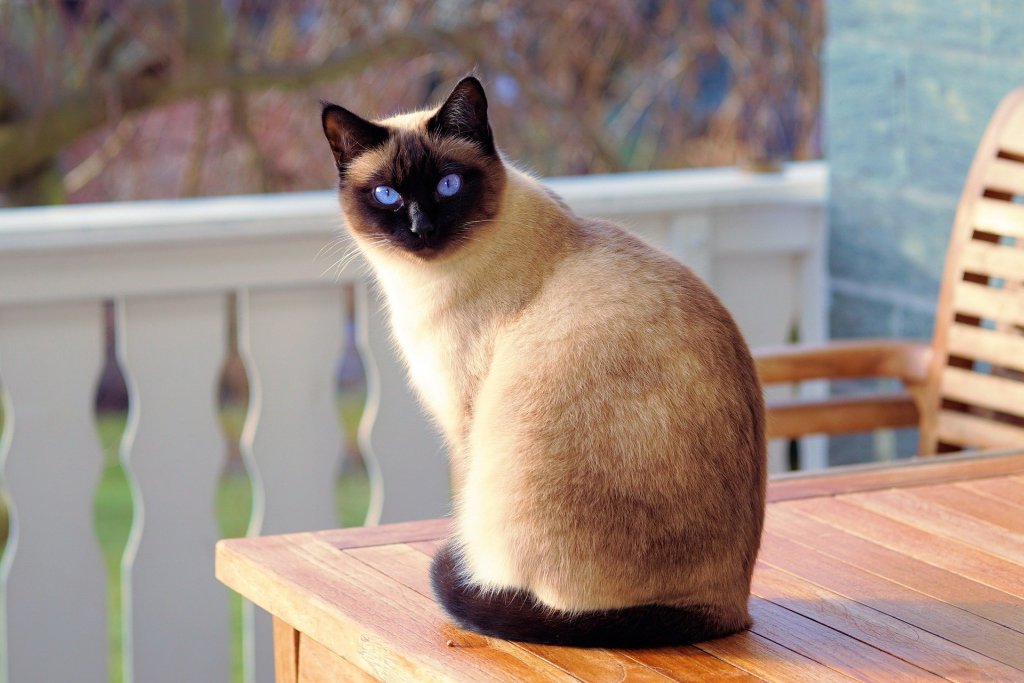We’ve all been there: Your cat strolls up to greet you, turns around, and puts his butt in your face. It’s an interesting way to be greeted, but it also happens so often that it’s clearly intentional. So why do cats show their butt, and more importantly, why do cats put their butt in your face? Like all cat behavior, it can appear a bit strange at first, but there are actually a few different potential reasons behind this behavior. When you understand them, you can better understand your cat and appreciate what he’s trying to tell you with this body position.

He’s greeting you
When cats greet each other, they typically stand head to tail and sniff. Cats have scent glands not only on their heads but also on their tails. Standing side by side and rubbing against each other lets them exchange their scents in a getting-to-know-you-type greeting.
When your cat walks up to you and rubs himself — including his butt — along you, he’s probably doing something similar. For him, this is a perfectly normal way to say hi, and if your cat does this only when you first walk into a room or when he’s just gotten up in the morning, chances are this is just his way of saying hello.
He’s marking you
Those scent glands along your cat’s tail? He may be using them to try to mark you as his when he puts his butt in your face. Cats mark their territory with their own scents, and if your cat is feeling possessive of you, he may try to mark you to tell other cats to back off.
Cats also accomplish this marking behavior by walking back and forth across your legs. They may rub their heads and chins on you to spread their scent.
If your cat is marking you, take it as a compliment. He cares enough about you to mark you as his own, and he doesn’t want any other cats to lay claim to you.
He trusts you
When a cat presents his tail to you, he’s putting himself into a vulnerable position. He’s also demonstrating that he trusts you. Your cat’s unusual posture could just be his way of showing you that he’s friendly and that he enjoys your companionship.
Your cat putting his butt in your face is similar to his showing you his belly. Both are vulnerable positions, and they require your cat to truly trust you to offer them up voluntarily. A cat’s instincts tell him to protect these vulnerable parts of his body, so if he willingly puts himself in a vulnerable position, take it as a big compliment. Your cat is showing how much he trusts you, and he’s showing you affection in his own special way.

Better understanding your cat
If your cat strolls up and puts his butt in your face, he’s not trying to offend you. In fact, he’s probably trying to show you his affection, his trust in you, or to just mark you for himself. Sure, it may be an odd sort of greeting, but for your cat, it’s purr-fectly normal. Cats communicate through body language and scent, and whether your cat is marking you with his scent or communicating to you with his posture, he’s sure he’s sending clear messages.
You can better learn to read those messages by learning about cat body language and behavior. Cats have all sorts of behaviors that might appear unusual to us, but they’re often grounded in instinct and have practical reasons behind them. The same is true of your cat’s body language.
The more you study your cat, the more aware you’ll be of the small signals he’s giving you all day long. Your cat’s body language may be subtle at times, but everything he does has a meaning that other cats can understand. You can learn to understand it, too. It will take time and you’ll need to watch your cat carefully, but you can look up the meanings behind different postures and then start to recognize them when your cat displays those behaviors. Soon, you’ll be much better at understanding your cat’s body language, and postures like sticking his butt in your face won’t seem so strange.


